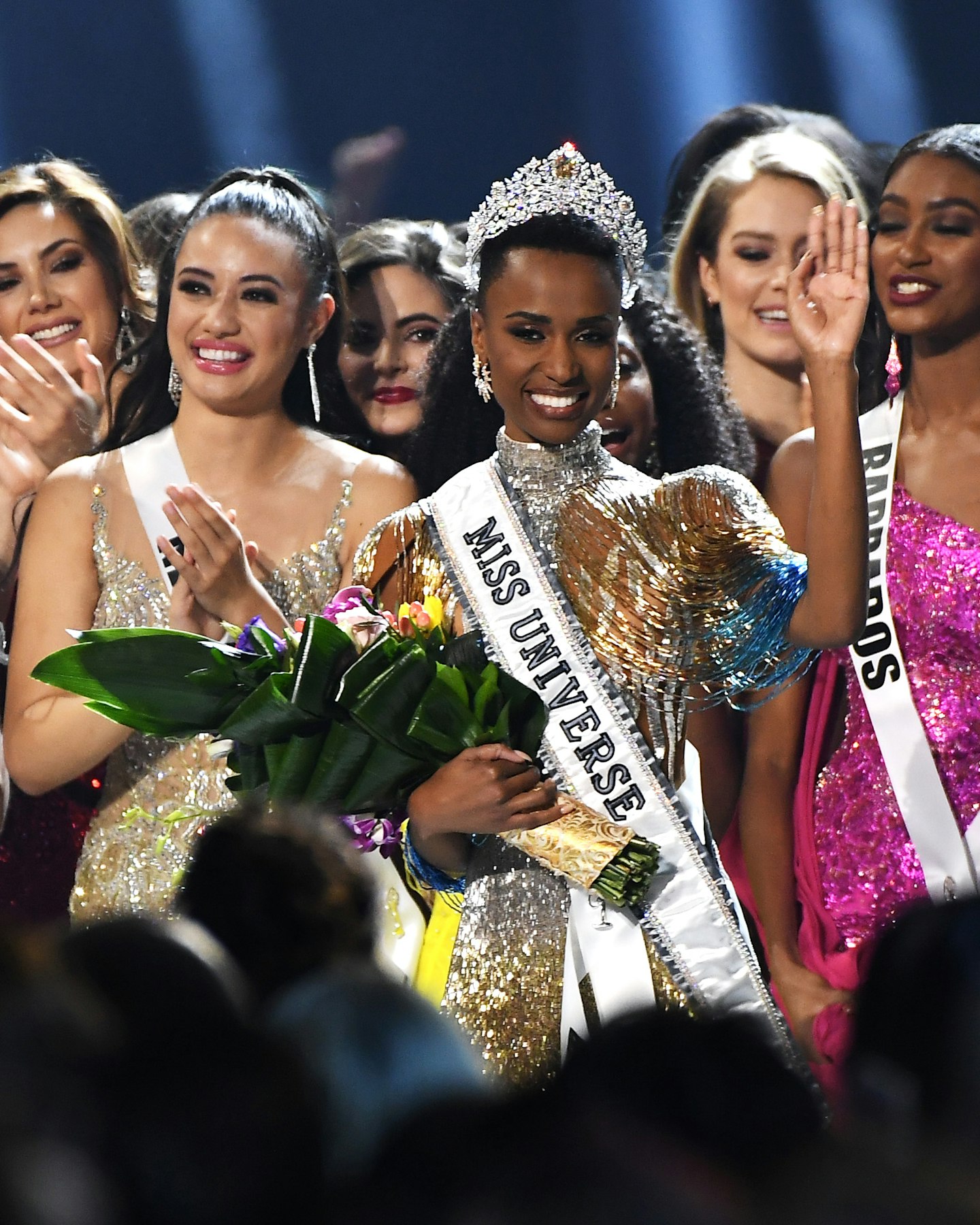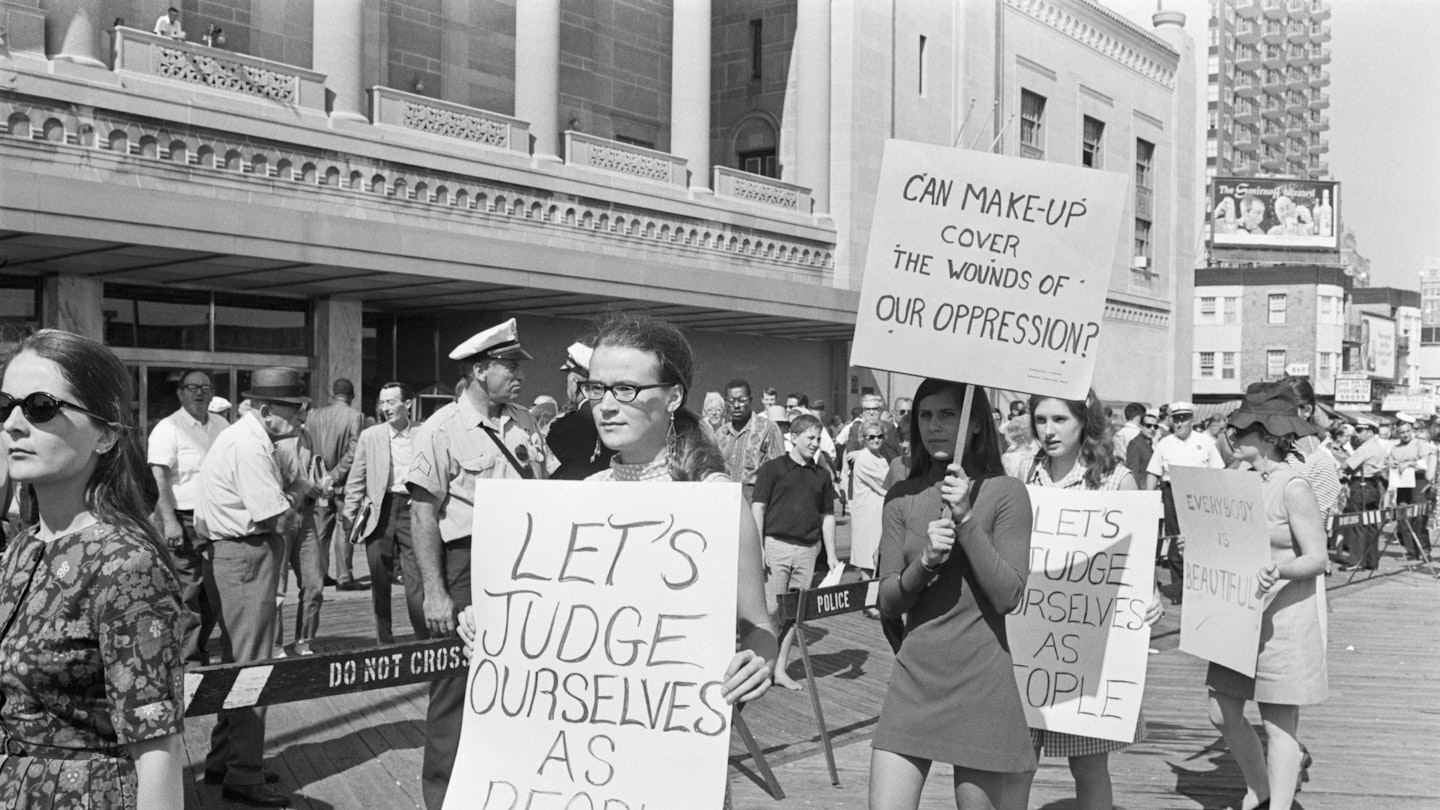Yesterday, Zozibini Tunzi, a South African beauty queen, won Miss Universe. In her winning speech, she told the world: ‘I grew up in a world where a woman who looks like me, with my kind of skin and my kind of hair, was never considered to be beautiful. I think that it is time that that stops today…May every little girl who witnessed this moment forever believe in the power of her dreams and may they see their faces reflected in mine.’
It’s a beautiful speech, from an extremely beautiful woman. And it’s always a positive thing to watch a woman achieve her dream. But, does the fact that Tunzi, a black South African woman, won really offset the manifold problems of beauty pageants?
Feminists have opposed beauty pageants since - well since they’ve both existed - even when there has been an argument that they are striking a blow for equality. 2020 sees the release of Misbehaviour, a film about the feminst opposition to the Miss World pageant in 1970, which saw the crowning of the first black Miss World. While pageants are certainly less objectionable when they feature a more diverse line-up, it still doesn’t sanitise the rampant sexism they represent.
Pageant organisers have tried, over the last couple of decades, to modernise. The events were dubbed ‘scholarship programs’. Some chapters ditched the swimsuit round, while last year Miss GB had a ‘no make-up round’. But no matter what is changed, the principle remains the same. Women are offering themselves up to be rubber-stamped with the approval that they are beautiful.

There’s nothing wrong with wanting to make a career out of your body or your face, just as there’s nothing wrong with wanting to make a career out of your mind. Neither is inherently more valuable than the other. Beautiful women should make hay while the sun shines. The question is why they’re choosing to do it via a pageant rather than any of the other options on offer.
In a world where beautiful women can use social media to build communities and turn themselves into a business which they also run, it seems inexplicable that any woman would choose to turn to a pageant where she is in direct competition with other women for the approval of judges, and where, if she wins, she is then at the disposal of the organisations.
Zara Holland became a victim of one of the biggest slut-shamings of recent years when she was stripped of her crown by the Miss GB pageant as a punishment for having sex on Love Island. Apparently looking sexy was enough to win her a sash, but actually having sex was enough to lose it.
Holland dedicated large chunks of her twenties to competing in a pageant and winning a crown that was taken away from her because those who gave it didn’t like the way she acted. What sense is there in lending your body and your face to an organisation that makes you abide by so-called ‘morality clauses’. Many of the major pageants refuse to let women enter if they’ve undertaken any glamour or adult modeling in their previous career.
If you grew up feeling that you weren’t beautiful because of your skin, hair, face, body or any other reason, it’s easy to understand that it can feel like a step forward when someone with your body type or skin colour is dubbed beautiful by a pageant. When you’re searching for signs everywhere and anywhere that you could be considered beautiful, seeing someone who looks like you is a nice feeling. But it’s a band-aid on a bullet hole. Instead of telling women that they can be beautiful, we should be telling them that beauty is not their most important quality. Pageants are still outdated and regressive, even if they are slightly more inclusive about who they consider to be beautiful.
It’s the same when the winner of a pageant is a transwoman, a plus-size woman, even a gay woman (though what that’s got to do with your appearance is anyone’s guess) – something which is inherently sexist and being extended to more women is apparently now radical and modern simply because it has widened the perimeters of who can be part of it.
There is no way – no matter how many swimsuit rounds you remove, or whatever euphemism you use to describe the pageant – to get away from the fact that ranking women by their beauty is deeply, unquestionably outdated.
Allowing a wider demographic of women as beautiful is not progress. Believing that all women are valuable regardless of whether or not they are beautiful - that’s progress.
READ MORE: Depressingly, more women are applying to take part in pageants.
